Boris Spassky - The Universal Chess Master
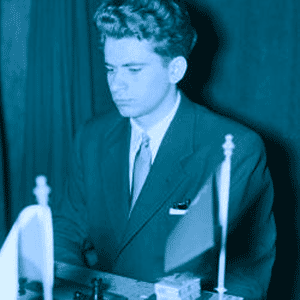
Boris Spassky
He could win a scientific slow burner against Petrosian or he could be last man standing in a dramatic roller-coaster against Tal. He was known for aggressive, imposing positional play which sometimes incorporated deeply calculated sacrifices. He was also capable of violent, attacking combinations with pieces being sacrificed right, left and center. Best of all he could marry both themes in the same game.
Garry Kasparov said of him: The universal chess style, characterized by the ability to play quite different types of chess positions, is considered by many to derive from that of Boris Spassky. But I think that the general idea that Spassky has a universal style overlooks the fact that from an early age, Spassky had a bent for sharp, attacking play and a good eye for the initiative.
Young Boris

Boris Spassky showed potential from a young age
The master Vladimir Zak had coached him as a child. The exposure gained through his win over Botvinnik opened doors. From 10 onwards he worked on his game for 4 or 5 hours a day with several Soviet masters.
He became the youngest Soviet player to achieve First Category Rank (aged 10), Candidate Master Rank (11) and Soviet Master Rank (15). At the age of 15, he finished in the middle of the pack in the USSR Championship and finished runner-up in the prestigious Leningrad Championship.
Early Career
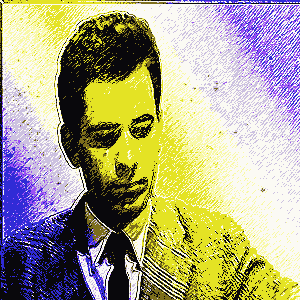
Boris Spassky achieved greatly in his early career
He competed in his 1st USSR Championship in 1955. He finished joint 3rd with only Vasily Smyslov and Efim Geller ahead of him. This result put him into the Interzonal Championship which was a preliminary for the World Championship.
He won the World Junior Championship also in 1955 before sharing joint 7th place in the Interzonal Tournament which qualified him for the 1956 Candidates Tournament. This was an important achievement as it automatically made him a GM at 18, the youngest player ever to achieve it at the time. He finished a respectable joint 3rd with four others. He was just edged out in the playoffs in the USSR Championship that year.
Among the Elite
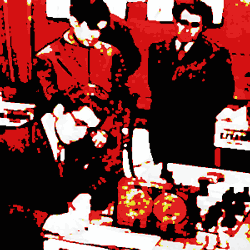
Boris Spassky plays a tournament game as Tal and Petrosian watch
Spassky's positional play rose to a standard equal to his brilliant tactical awareness. He was now becoming the complete player. His results improved significantly to reflect his growing strength. Spassky was back better than ever.
He won Riga 1959, shared 1st place at Mar del Plata 1960 and triumphed at the 1961 USSR Championship in Baku, Azerbaijan. He won Belgrade 1964 and finished in high places in several other tournaments around this period. Spassky was growing in confidence with his game for all seasons and began to think about the biggest prize of all.
Path to Glory
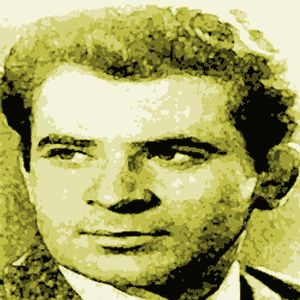
Boris Spassky was on the path to glory
He had reached the Candidate's Tournament to be played in 1965. Now he would play for the right to face Tigran Petrosian in a match for the World Championship.
The tournament was ran on a knock-out format with 8 competing in quarter-finals. Spassky beat Paul Keres in his Quarter-final, then Efim Geller in the Semi-final. He then beat former World Champion Mikhail Tal in the Final. Spassky now had Petrosian in his sights.
Spassky vs Petrosian
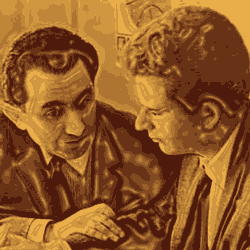
Tigran Petrosian and Boris Spassky
The battle raged over 24 games between these two masters. In the end after a hard fight, the champion Petrosian prevailed on a score of +4-3 =17. Spassky would have to wait for his shining moment.
But he would not be delayed forever. He again won the Candidates Tournament in 1968. This time he won through against Geller in the Quarter-final, Larsen in the Semi-final and finally Victor Korchnoi in the Final. A year later he was back to face Petrosian again. It was a different story this time as Spassky took the crown, winning +6-4 =13.
Match of the Century
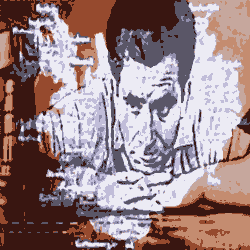
Boris Spassky took part in what would come to be known as the Match of the Century
Inevitably a challenger to Spassky's title would appear on the horizon. A new force in world chess was forming in the shape of Robert J Fischer. Fighting out of Chicago, Illinois, (later NYC), Fischer was the most exciting prospect to come out of the United States since Paul Morphy, a century earlier.
Fischer progressed up the chess ladder during the 60s and won the Candidates Tournament in 1971. This was during the height of the Cold War Era between the two global superpowers at the time, the USSR and the USA. Chess had been highly politicized in the Soviet Union for decades.
Now with Fischer reaching the World Championship against a Soviet, Americans took an unprecedented interest in the game. The two players were styled as gladiators, each representing his civilization against the nemesis, in a proxy war. Chess was under the global spotlight like never before or since as the two protagonists faced off in what would be dubbed the Match of the Century.
Spassky vs Fischer
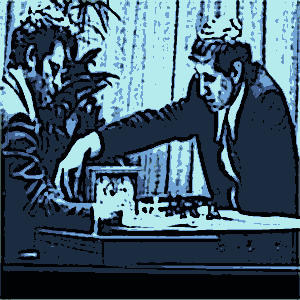
Bobby Fischer triumphed against Boris Spassky in the Match of the Century
Spassky got off to a great start in the first game playing as White. In a drawish bishop ending Fischer blundered inexplicably. He got his bishop trapped and lost it for only two pawns. Spassky won the endgame and was 2-0 up in the match when Fischer forfeited the second game in a row over cameras and a subsequent no-show.
But after that Fischer, who had come into the match on a recent 20 game winning hot streak found his form. He won five of the next eight games to lead by three points after 10 games. The second half of the match was very tight with mostly draws. Fischer won two further games to Spassky's one. Fischer won it +7-3 =11. Spassky had lost the title.
After Reykjavik
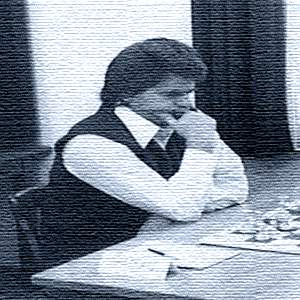
Boris Spassky remained competitive for many years after Iceland
In 1974 he tried to fight his way back to a rematch with Fischer. He beat another American, Robert Byrne in the Candidates Tournament Quarter-final. Spassky fell in the Semi-final to Anatoly Karpov.
Spassky moved to France in 1976 and lived there for 36 years, only returning to Russia in 2012. That same year he was back in the Interzonal phase for the following cycle. He finished in a share for 10th in the 1976 Interzonal Tournament in Manila. Just when he thought he was out, he was given a wild card for the Candidates Tournament by FIDE when Fischer declined his spot. He beat Vlastimil Hort in the 1977 Candidates Quarter-final and then Lajos Portisch in the Semi-final. Korchnoi beat him in the Final +7-4=7.
Later Years

Boris Spassky lost the Revenge Match of the Century against Fischer in 1992
He got another wild card to play at the 1985 Candidates Tournament in Montpellier. It would be his last appearance at this level. This time the tournament was in league format. Spassky tied for 6th, just a half point shy of the playoffs.
He and Fischer staged a rematch of their famous encounter in 1992. 20 years on from Reykjavik, the result was the same. Fischer won +10-5=15. He faced another old adversary when he drew Viktor Korchnoi +2-2=4 in 2009.
Legacy of Spassky

Bobby Fischer triumphed against Boris Spassky in the Match of the Century
We are advised to play the middlegame like a magician and Spassky certainly did. This was the stage that became his forte. His positional plans were deep and his tactical assaults were deadly. His calculating was so accurate that he could sacrifice a piece without any apparent compensation showing up until several moves later.
Fischer even said of him once: Spassky sacrifices his pieces with the utmost imperturbability. He can blunder away a piece, and you are never sure whether it's a blunder or a fantastically deep sacrifice. He sits at the board with the same dead expression whether he's mating or being mated.
Moving On
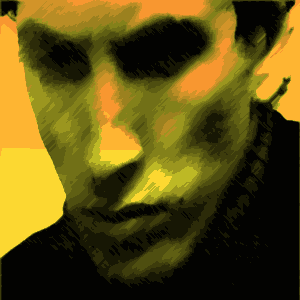
Bobby Fischer
Paul Morphy came out of the United States in the 19th Century to humble the chess world. His breath taking skills on the board contrasted sharply with his inability to function in other areas of his life. The next great US chess legend would exhibit remarkable parallels to Morphy.
Someone like Spassky could only be replaced by a unique talent. His conqueror in Reykjavik, Iceland was Bobby Fischer.






